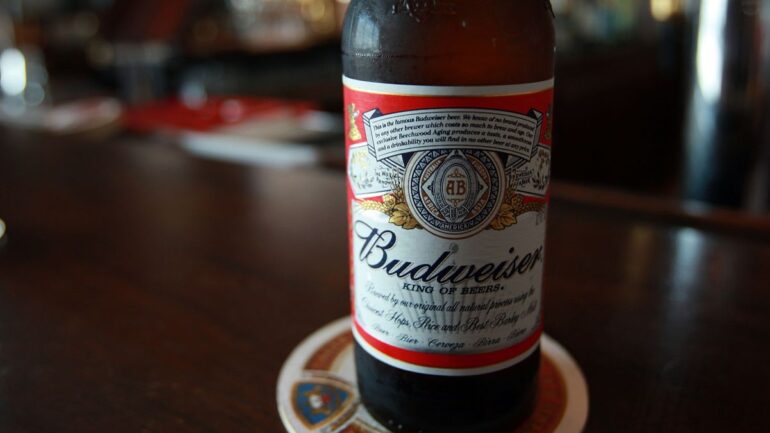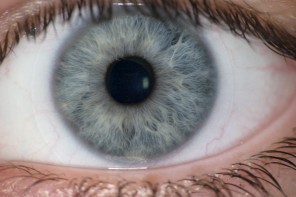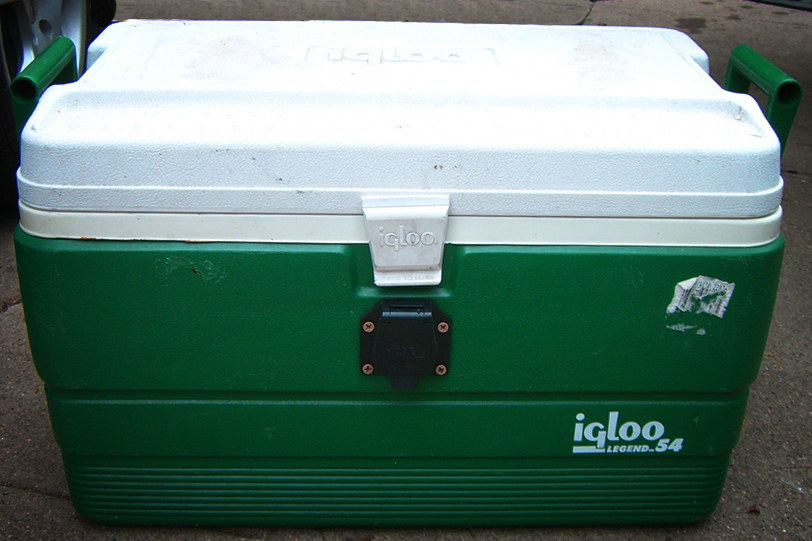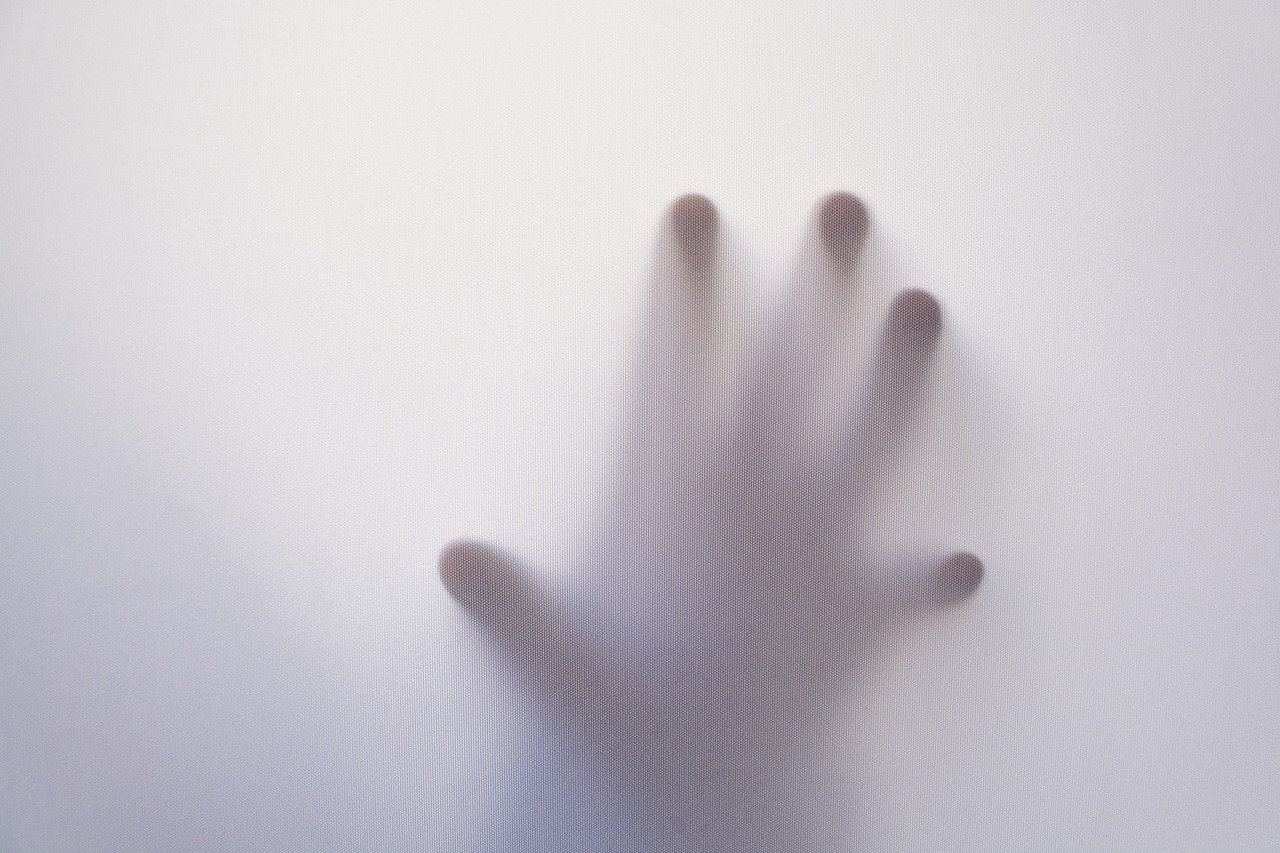Cristina Hartmann
I met him at one of those conferences Mom made me go to. She thought it’d be good for me to meet others in my “situation.” Like we were going to pour our hearts out in a healing circle or something. At least we got free food.
George introduced himself with a quick, limp handshake. I had been sitting alone at the banquet table. A holster for his white cane bounced at his hip as he circled the table and blinked at me as he sat down. He had one of those prism glasses that were supposed to make you see better. They made him look like he had multiple eyes—fly eyes. He wore his blindness as if it had already happened.
We were both seventeen, but George had the smooth, pinched face and slicked-back hair of a twelve-year-old accountant. No surprise when he said he wanted to major in accounting in college.
“Sounds boring, but if you’re into it, cool. I’m gonna wrestle like Matt Hamill.”
His many eyes blinked at me. “Who?”
The guy was out of touch. I told him about Matt Hamill, the most kick-ass Deaf wrestler ever—no, the most kick-ass wrestler, period. He was a three-time Division III champ before going pro. In UFC 96, he took out Mark Muñoz with a kick to the head. Nobody thought he stood a chance. That’s what champs do. They fight to the end.
“But he’s Deaf,” George said in slow, boxed movements. “You’re DeafBlind.”
Funny how easy you forget you’re going blind. It’s one of those brain tricks, filling in your blind spots like a coloring book. Our minds love playing jokes on us all. But that was our situation: Deaf and going blind.
“I think there are some DeafBlind wrestlers in the Paralympics,” he said as if he felt sorry for me.
“Fuck that. I came in third in State last year. I’m gonna win this year.”
George flinched at my curse and smiled. A wimpy grin. “I hope you win.” He meant it, too.
I would’ve won State that year if I hadn’t pulled a hamstring, and Coach scratched me from the lineup. He said it wasn’t worth ruining myself for a trophy. He didn’t get what being a champ meant.
George unfolded his cane and headed toward the ballroom for the keynote. A bunch of tourists in the hotel lobby stepped aside for him, the Red Sea parting for Moses. They stared at him, open-mouthed, like he was an exotic bird in a cage. He walked with his head up, shoulders back. Like he didn’t feel the pity that lay between him and the tourists, cold and still.
Mom swept in from wherever she’d been, and I caught a nose full of cigarette smoke. I got to my feet and held out my hand. “You promised. Give them to me,” I said, real slow so she would understand.
She was never great at ASL, but at least she tried, which is more than I could say for Dad.
She pursed her lipstick-bright lips like she’d refuse, then slapped a half-empty pack into my hand. Her mouth trembled when I crushed it and walked to the trash. The deformed silver package disappeared into the hole with one last flash.
Nearby, George’s mom was scolding him for not being careful enough. Lots of that type around, human sonar parents yelling if their kid bumped into anything. He stood stiff, his white cane at his side, a defeated soldier at rest. Poor guy.
After I returned, Mom kept staring at the silver can like she wanted to climb inside and fish the cigs from the half-eaten lunches and snot-filled tissues. She was falling apart at the seams. Lipstick on her teeth, grays peeking out under her dye, hands shaking from being jumped up on nicotine. Both of us knew Dad was about to bail. I guess we all have our ways of coping.
After a lingering look at the trash, she faced me and said with her mouth, “I saw you talking to George. He’s a nice boy, isn’t he?”
“He’s alright. Kind of a dweeb,” the letter G twisted at the forehead. That would be how I thought of his name. Dweeb, nerd, loser. His name was really G at the opposite shoulder, too close to the word for guilt, which is over the heart.
Her eyes sharpened. “Don’t say that about someone like yourself.”
“We’re nothing alike,” I said, my fingers circled into a zero. The whole place was a zero.
Mom used her hands this time, two T’s in a circle: “Team. Your father always liked that word in his wrestling talk—how teammates stick together. Too bad he forgot about that part.”
“Hey, I listened to him talk about spreadsheets.”
She raised her chin. “Be nice,” she said, then whirled around in her scratched-up heels and clomped into the ballroom.
The ballroom was a big, lonely place where they had speeches during dinner. Talks to inform and expand our horizons.
A doctor stood under bright spotlights as ASL interpreters relayed his words. He explained how it would all go. First comes the night blindness, and then the sides fade into a small disk of sight. Then blindness comes. Blah, blah. Except that’s not how it happens, but doctors know what they read in thick books and what they see in machines. Not how it really is.
We chewed on stringy beef and butter-drenched squash as the guy went on and on about a cure. Twenty years, maybe thirty. It’s always twenty years, no matter when you ask. He ended the talk by saying, “Studies show that people in your situation have higher IQs on average.” Like that fixed everything, if it was even true.
Then came a chick who climbed some mountain out East. She had been backed by a big-name organization and had five porters with her the whole time. “Working together is so important,” she said, one hand clasping the other. “We can achieve so much together.” A nice line for the magazines and talk shows. People like to throw money at these trips but never seem to spare any for interpreters, co-navigators, or any basic services for us to do anything. She left without talking to anyone except the coordinators, surrounded by professional strangers.
The bullshit talks weren’t even the worst part. That would be the rest of us.
After the last presentation, a girl at our table, a college freshman somewhere, pointed at the smiling middle-aged woman, greeting everyone by name. The woman was one of the organizers. “Don’t be fooled,” she said to me. “She only sees this much”—her hands formed a small circle—“uses a white cane everywhere. She doesn’t use it here because she knows this place.”
Sitting across from us, George tapped the table to get our attention. “She does a good job. Everything runs on time.”
The college freshman rolled her eyes at him.
She and another girl, a freckled blonde, started talking about a girl sitting far away. “In denial,” the blonde said as the college freshman nodded. Did you see her trip?”
“So sad,” the college freshman said, nearly toppling her water glass with her elbow. She laughed it off.
George sat there, his hand folded on the table, watching them with his fly eyes. His thin lips twisted into a grimace.
By seven, I’d had enough. Mom was somewhere, crying her eyes out in that parent support group. I tried to get Corrine, the cute sister of one of the younger kids, to come, but she chickened out at the last minute. So I snuck out to the bar alone, a fake ID warm in my pocket. I was a big guy, a 182-pounder. Most people took me for twenty-three, so the picture of a college junior with a similar haircut and skin color didn’t raise suspicion.
When you walk into the wrestling ring like you’re going to win, people around you believe it. Sometimes, you believe it yourself. I walked in, tall and proud, straight to the bar counter lit up nice and bright by the hanging fluorescents. I did it slow enough to feel my way and fast enough not to draw attention.
I slid in next to a man sipping his beer and waited for the bartender to notice me. The other men clutched their glasses, faces blank, and backs slouched. I hunched over and let my shoulders drop, just like them.
I learned this trick after making varsity my sophomore year. These blue-and-white jackets made me untouchable. Nobody dared make fun of my voice or the hearing aids in my ears. We went everywhere together, and I would stand there, watching my teammates talk. Shit about girls or cars, probably. It was too much trouble following, so I thought about wrestling, and nobody bothered me.
The bartender’s eyes skimmed my face without really looking. He didn’t ask for my ID. I typed my order on my phone and slid it across. A Bud. Regular, not that light crap.
Dad was a Coors man. He grew up near its headquarters in Colorado and never drank anything else. Our fridge always had at least a few Coors. Mom hated the stuff and kept hiding it in the garage. When I found a dented can on the floor, I knew they’d had a fight. Their fights left traces like evidence in a murder case. Empty packs of cigs in the trash. Dad gone somewhere. Misery on Mom’s face. Mom said it was complicated. She meant the fights had something to do with me.
The beer arrived, and I downed the cold bitterness.
Dad had probably spent that day packing, piling his work clothes into boxes. A balding middle manager at a food supply company with an old wrestler’s limp doesn’t sound like a catch, but his future wife and my eventual stepmother disagreed. Must’ve been something irresistible about a washed-up wrestling champ who busted his knee his junior year of college and never shut up about it. They met in the doctor’s waiting room, him for a vasectomy consult and her for a UTI test. Somewhere in there, they found love. They’re still married, if you can believe it.
A week before the conference, Dad gave me a note telling me he was leaving. Probably couldn’t say it in ASL. Stood there as I read about how this didn’t change anything, he was still my dad, and he was proud of me, a champ wrestler. He ended it in the lamest way. I never thought I’d be the kind of man that did this. Maybe you’ll forgive me someday. A loser note from a loser. He watched, eyes big, as I balled up the note, squeezing it into a tight wad, and tossed it on the floor.
I ordered one more Bud and then another. Bitterness on your tongue is something you get used to.
As I sucked on my fourth Bud, I felt a hand on my shoulder and whirled around. I squinted into the grainy darkness and saw a flash of light reflected off a pair of glasses, square and nerdy. It was George.
“What are you doing here?” I asked the George-shaped shadow.
He moved under the light. “Corrine said you’d be here.” His hand reached out to my nearly empty glass and jerked back when he realized what it was. “You’re not old enough.”
“You’re not my mom.”
Mom wouldn’t even have cared. All she said was not to be stupid. Some feminist crap about autonomy and self-determination.
“But it’s the law.”
“A stupid law that deserves to be broken.”
George got a pinched look and said, “But you left, and I wanted to make sure you were okay.”
People were glancing our way now. The bartender had stopped washing glasses and was staring at me.
“Be cool,” I told George.
“I don’t know what that means. I’m just me.”
“That’s the problem.”
He blinked, his glasses magnifying his hurt. I felt bad. He couldn’t help being such a dweeb. He didn’t know any better.
“What I mean,” I told him, “is that you don’t want everyone to know we’re underage and get busted. Just be cool.”
The bartender now had his dishrag on his shoulder and was walking over with his hand out like he wanted our IDs. Busted.
I threw down a twenty and left as fast as I could. When I stumbled over a chair leg, George steadied me and kept a hand on my shoulder as we rushed toward the door. His hand felt heavy, ballast in the hold stabilizing me as we entered the night.
The chill made me curse, and I started for the hotel. Within a few steps, I realized the darkness had gone flat. I squinted, trying to find a telltale shadow or light, and found none. This dark was different, impenetrable. Maybe it had been the beers or the thoughts about Dad. The ground felt loose and unsteady, and I couldn’t remember how to get back to the hotel. I always remembered this stuff. It felt like the night was going to swallow me up.
George put his warm hand on my shoulder, slid it down to my hand, and led me. I went with him, a gentle dog on a leash, grateful for guidance. His cane tapped along for both of us, his hand bouncing when a curb came. I hopped, nice and obedient, my head woozy with the smell of burnt leaves and night. My foot caught a crack, and I snapped out of it.
George was a dweeb, a nerd, a loser. I couldn’t be with him, holding hands. If people saw us … We weren’t together. We were apart, separate. Nothing alike.
I snatched away my hand. My fingers went cold, and the unsteadiness came back. George’s hand grasped at my shoulder, searching, and I stumbled backward, out of reach.
“I’m not a fucking loser. You are. Don’t you get that?” I said into the night.
He didn’t—couldn’t—see the words, but they were out there. I reached out for him and found only dry air. My hand swiped through emptiness again and again. Without knowing why or where I was going, I searched for him. Where had the dweeb, nerd, loser gone? My lungs seized from the cold, and the sidewalk had gone tilted. I couldn’t find him. I only found darkness.
After I don’t know how long, I stumbled into the lobby, squinting against the chandelier’s glare. Once I caught my breath, I went to the front desk, where a woman in a starched red jacket stood behind the counter. I typed on my phone to ask her if she had seen George. She read the message and gave me a wary look.
It took some convincing that I wasn’t a creep and was part of the stupid conference. Finally, she told me George had returned a while ago. I asked if he was okay.
The words glowed onscreen: Better than you.
I guess I deserved that. Bruised elbow, thorns in my jeans from stumbling into bushes, and the stink of hops thick on me, I wasn’t at my best. If she didn’t think I was a pathetic drunk, she thought something worse. My most charming smile only made her more pissed, and it was time to leave.
I texted Mom that I was going to bed. She had probably left the hug circle for a smoke. I could imagine it. Mom shivering behind a bush, huddled over the burning cigarette tip for comfort. I wanted her to rush that red glow under her heel, walk inside, and spend the night with the other moms, talking about whatever moms talk about. But I knew she wouldn’t. It wasn’t her style like it wasn’t mine.
I lay in bed, muscles twitching and cuts stinging. When I felt Mom’s footsteps, I kept my eyes shut and inhaled the scent of ash. After the room went still, I opened my eyes to the dark and wondered who the loser was. Sleep didn’t come until near dawn.
In the morning, Mom came out of the bathroom, face wiped clean of all color, and took one look at me. “Oh, Toby,” she said. “you were stupid, weren’t you?”
I shrugged.
“Let’s go home,” she said.
On our way out, we passed George, standing alone with his suitcase next to a vase full of fake yellow flowers that hurt my eyes. His cane was even brighter, stark white against his dark clothes. He held it angled, at rest but ready for action. His fly eyes followed me across the lobby, pity reflected a dozen times in the squares. I followed Mom to her beat-up Subaru, and we drove back to an empty house.
This was a long time ago. I’ve done lots of stupid things since.
Cristina Hartmann is a DeafBlind Brazilian American writer living in Pittsburgh with her longtime partner and a slobbery cat named Moo-Moo. She received an MFA from the Vermont College of Fine Arts in 2024, and her work explores relationships and identity through disability and immigrant experiences. Her fiction was shortlisted for the Masters Review Summer 2021 Short Story Award and has appeared in Stillhouse Press’s anthology In Between Spaces, descant, The MacGuffin, Peatsmoke Journal, and elsewhere. You can find her on her website and on Facebook.




